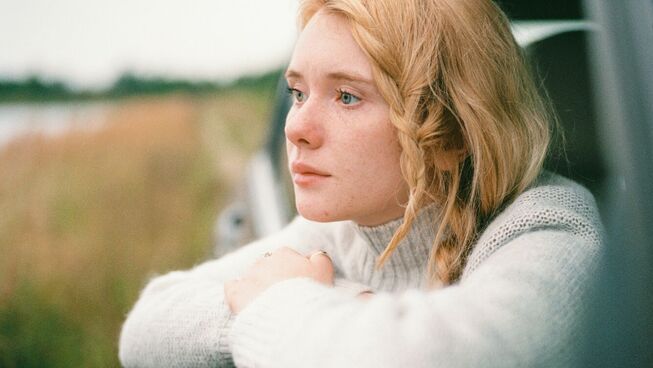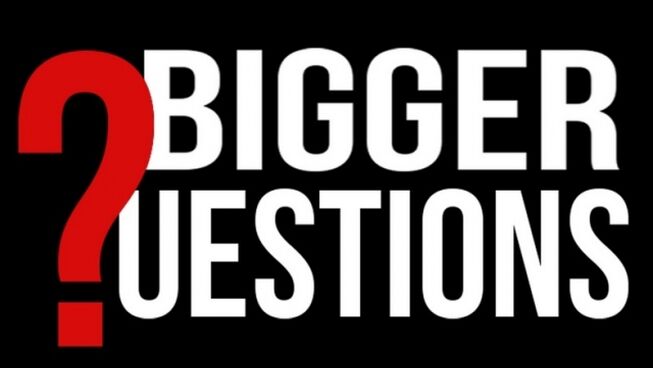We’re all gonna’ die and I feel fine

I’d be happy never to hear the word COVID again. The last three years have been a real downer. Not just because of the fear of the illness itself, the lonely restrictions or even that constant gnawing anxiety and dread. What’s been the biggest downer is the way that the (trigger word warning) *pandemic* highlighted the inequality between the rich and the poor, exposed the bleakness of late stage capitalism and gave us too much head space to worry about the impact of climate change.
All of these fears and concerns are dealt with in @nachoz798’s video essay on what he calls Upbeat Nihilism. He attributes Nietszche and Turgenev as thinkers who established the origins of nihilism - which is defined by the Oxford Language dictionary as
the rejection of all religious and moral principles, in the belief that life is meaningless
However he also clarifies that artistically, nihilism is an act of deconstructing what makes life meaningful. One example of a cinematic exploration of a nihilistic worldview is the character Patrick Bateman from American Psycho. Bateman demonstrates an extreme expression of nihilism, whose morality has broken down completely and results in murder, cannibalism and psychopathic behaviour.
Upbeat Nihilism
But what is “Upbeat nihilism” or as it’s also known, “Cheerful Nihilism”?
In 2020 Ireland, Sarah Finman wrote a piece for Image magazine that explored her first Christmas in isolation. As a *cough* COVID piece, these were not uncommon experiences, but her explanation of “cheerful nihilism” getting her through, revealed something interesting:
Don’t feel too bad for us though, the cheerful nihilism kept us going. We’re a nation of cynics so making light of our misery is usually our first instinct.
In 2021, American comedian Bo Burnham filmed a Netflix musical comedy special isolated in his guesthouse, using a distinctly self–made production style with painfully self-aware, anxious and socially concerned songs. Most of these songs, which explored income inequality, panic and depression, illustrated painful themes with catchy melodies.
Burnham’s special has a 95% rating on Rotten Tomatoes and won various awards, including a Grammy for All Eyes on Me for “Best Song Written for Visual Media”.
Ubiquity as Anxiety
Burnham’s song titled Welcome to the Internet explores how the 1999 sparse virtual space with “catalogues, travel-blogs, a chat room or two” exploded into constant entertainment that caters to every single fear, desire or interest.
The refrain of Welcome to the Internet is:
a little bit of everything all of the time,
anything and everything, all of the time
Apathy’s a tragedy and boredom is a crime
Anything and everything ALL OF THE TIME
In her early review of Everything Everywhere All at Once (EEAAO) Justine Toh drew a similarity between her need to have multiple internet browser tabs open at the same time to Mrs Wang being split between multiple universes.
EEAAO speaks to our sense of being torn in many different directions all at once. We have email, multiple messaging apps, hybrid workplaces. We juggle work and home personas, personal and public expressions of ourselves.
We are constantly accessible and constantly accessing a virtual world that Burnham described in a recorded interview as feeling more real than our physical existence.
In one of the multiverses, the main antagonist is gripped by a consuming despair, expressed in a craving for nothingness. Her hypnotic call on Mrs Wang embodies a nihilist response to overwhelming anxiety, trouble and living in a hyperreal world.
What’s the alternative?
While recovering from the hypervigilance of living through a once in a century event while anxieties about climate, corrupt institutions and capitalism steal our joy, what alternative is there beyond cheerful nihilism?
A nihilist worldview, however cheerful, can force us into a state of constant deconstruction creating a black hole of meaning, not unlike the very large bagel in EEAAO. If we dig for ourselves a hole in this vein, we are not seeking a greater meaning, but merely reframing the despair into a somewhat perverse delight. Is cheerful nihilism just a more moral and socially conscious expression of its original Nietzschean version?
Biblical Nihilism?
King Solomon in his famous book Ecclesiastes argued that existence is meaningless. After conducting an ancient world happiness experiment with access to obscene wealth, privilege and intelligence, he still found that:
What is crooked cannot be straightened;
what is lacking cannot be counted.
Was Solomon himself some kind of nihilist, deconstructing his views of meaning apart from religion and morality? Solomon who tried to take pleasure in the details of life, knowing he was going to die one way or another?
Solomon’s deconstruction took him in the opposite direction to Nietzsche, Turgenev, Burnham and others; it drove him towards his Creator.
Remember him—before the silver cord is severed,
and the golden bowl is broken;
before the pitcher is shattered at the spring,
and the wheel broken at the well,
and the dust returns to the ground it came from,
and the spirit returns to God who gave it.
Where is your deconstruction leading you?
Deconstruction is an important process when we’re disillusioned about something, whether that's politics, capitalism, our careers or personal relationships.
The cheerful nihilism method of deconstruction can be seen as a way of processing disappointment, but it also risks dissociation from the very problems its seeking relief from. This is where we can become distant, numb or apathetic.
Holocaust researchers explored the power of “gallows” humour as a survival mechanism. Jokes about being made into soap, calling each other fat and similar jibes provided relief from the constant dread and fear of imminent death.
This kind of humour is important for surviving difficult situations, but it is not enough for resolving existential dread. Remaining in a state of cynicism long term, even as the initial urgency ends shields us not just from pain, but from pleasure too.
The Jewish sense of black humour is a form of escapism, yet it has not lost hope, even in the midst of immense suffering, because it is also grounded in a sense of belonging to God.
The far more fortunate Solomon faces the boredom, horror and sorrow of life and instead of distancing himself from things through what he calls “folly”, he turns to his Creator for hope.
Will you turn also?







